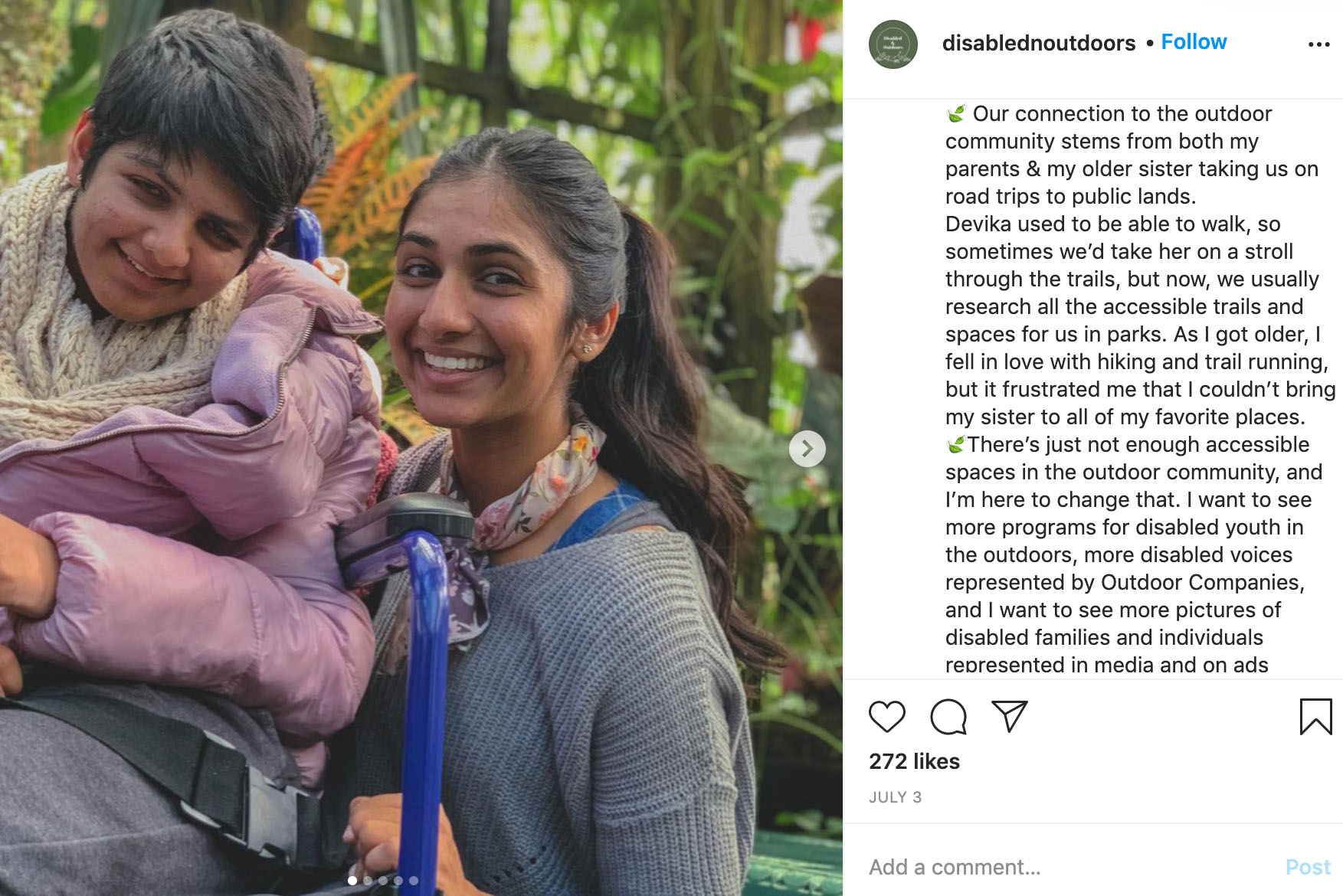Ambika Rajyagor (she/her) is a first-generation Indian-American writer, activist and digital creative with an emphasis on Intersectional Feminism, Special Needs Rights and Nature Conservation.
How has the climate crisis impacted your community?
The ongoing climate crisis has directly impacted my community, multiple times. I live in a very hilly area that is on high alert every fire season, and this year, because of the extreme winds and zero percent humidity, the Blue Ridge fire took over our community. Thankfully, we have incredible firefighters who worked day and night to protect our homes, but still-- I couldn't help but think about how climate change played its role in amplifying the power of these fires. The intensity of the winds seems to be increasing year over year, on top of the dry air that enables these fires. Each season carries its own new natural issues, like dealing with the record-breaking temperatures each summer and hoping for rain each spring. Aside from this though, we are in no immediate danger from natural disasters like other places in America, so I'm aware of the privilege that comes with that. If anything, living through these weird natural events over the majority of my life has only made me become more of an advocate for nature conservation and environmental advocacy. It makes me think of the marginalized communities all around the world who have to deal with the worst parts of climate change, even though they have nothing to do with the 100 companies who account for 70 percent of global emissions. It's not right, and it shouldn't have to happen to you or your community to matter to you.
Where do you see the intersection of the climate crisis, public lands and racism?
I fully believe that environmental justice is intersectional. Our public lands are constantly at the threat of the ongoing climate crisis, and the high-level administrations who are in charge of making decisions for them need to be mindful of that. Under the Trump administration, it was so obviously not a pressing matter, and we saw that through the proposed plans for commercialization of public lands, and press conferences where states were being blamed for not "cleaning up the leaves" well enough. Racism in the outdoors affects environmental justice as well, because without environmental advocacy, marginalized communities become an afterthought in the climate crisis conversation. Racism and prejudice in the outdoor community exists on multiple levels-- ranging from Indigenous access to land management, to environmental legislation, and access to the outdoors in general.
How do you think access to nature and public lands can help address climate change?
I believe access to nature and public lands can help address climate change through exposure and education. I'm also a very passionate advocate for the disabled outdoor community, and fully believe that with representation and inclusive environmental justice conversations, we can talk about approaching climate change on a more widespread level. I also believe that access to nature is one important topic, but feeling safe and included in the outdoor community is equally as important. Building an inclusive outdoor community that prioritises conservation education and environmental justice is extremely important as we continue our work against climate change.
"social" - Google News
December 17, 2020 at 02:09AM
https://ift.tt/3msgnUq
Four climate justice activists to follow on social media - The Wilderness Society
"social" - Google News
https://ift.tt/38fmaXp
https://ift.tt/2WhuDnP
Bagikan Berita Ini















0 Response to "Four climate justice activists to follow on social media - The Wilderness Society"
Post a Comment